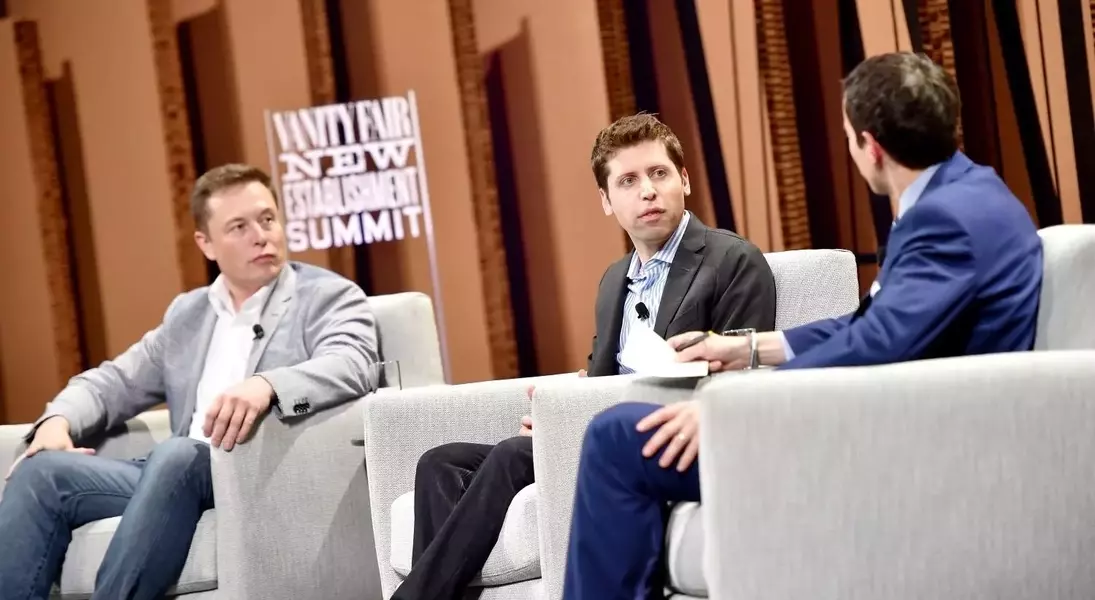Elon Musk, along with a coalition of investors, has submitted an unsolicited offer of $97.4 billion for a controlling stake in the organization behind OpenAI. This bold move could disrupt Sam Altman’s plans to transition OpenAI into a for-profit entity. The clash between Musk and Altman, once co-founders, highlights deep-seated tensions over the direction of artificial intelligence.
Musk Seeks to Reclaim OpenAI’s Original Vision
A New Chapter in the AI Revolution
The history of OpenAI is marked by its transformation from a non-profit venture to a for-profit entity under CEO Sam Altman. Established in 2015 as a collaborative effort between Musk and Altman, the organization aimed to develop AI technologies responsibly and openly. However, Musk's departure in 2019 following disagreements over leadership set the stage for a prolonged legal battle. The recent bid suggests Musk believes OpenAI has strayed from its foundational principles.Musk's vision for OpenAI involves returning it to its roots as an open-source, safety-conscious entity. Critics argue that this shift could undermine the progress made since the company began partnering with major tech firms like Microsoft. These collaborations have enabled significant advancements in AI research and development. Yet, Musk contends that maintaining a focus on public good should take precedence over profit motives.Investor Support and Strategic Partnerships
Backing Musk's ambitious proposal are several high-profile investment firms including Valor Equity Partners, Baron Capital, Atreides Management, and Vy Capital. Notably, 8VC, controlled by Palantir co-founder Joe Lonsdale, also participates in this consortium. Ari Emanuel, brother of former White House chief of staff Rahm Emanuel, adds further clout to the investor group. Their collective support underscores the potential impact of Musk's bid on the broader AI landscape.These partnerships bring not only financial resources but also strategic insights into the future of AI technology. For instance, xAI, Musk's Nevada-based AI company, could play a pivotal role if the merger goes through. By integrating xAI’s capabilities with those of OpenAI, the combined entity might accelerate innovation while adhering to ethical guidelines. Moreover, the involvement of influential figures like Emanuel signals a willingness to engage at the highest levels of government and industry.Potential Implications for the AI Industry
The ramifications of Musk's bid extend beyond OpenAI itself, influencing the entire AI sector. If successful, this acquisition could alter the competitive dynamics among leading AI developers. Companies previously aligned with OpenAI may need to reassess their strategies or seek alternative partnerships. Conversely, new opportunities could emerge for startups looking to capitalize on shifting market conditions.One key concern is how this move will affect ongoing projects such as Project Stargate, which aims to build critical infrastructure for AI applications. Announced shortly after Trump’s inauguration, this initiative received backing from Altman during his visit to the White House. Whether Musk’s takeover would disrupt or enhance such efforts remains uncertain. Nevertheless, the prospect of a restructured OpenAI opens up possibilities for reshaping the AI ecosystem in ways yet unforeseen.OpenAI’s Response and Board Decisions
Despite the high-stakes nature of Musk's offer, OpenAI has remained tight-lipped about its official stance. A lack of immediate response raises questions about internal deliberations within the board. Given Musk’s assertion that they are prepared to match or surpass competing bids, the board faces pressure to make a decisive choice. Other parties interested in acquiring OpenAI might now be compelled to submit counteroffers, intensifying competition for this valuable asset.Sam Altman’s lighthearted tweet suggesting he might buy Twitter instead reflects the complex interplay between personal rivalry and corporate strategy. While humorously deflecting attention away from the serious implications of Musk’s bid, it also hints at underlying tensions. Ultimately, the outcome hinges on whether OpenAI’s leadership can navigate these challenges while preserving the organization’s integrity and mission.
